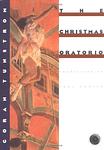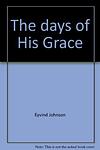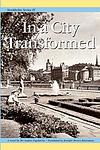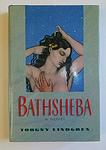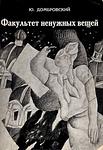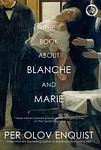The Greatest Swedish, Russian "Historical fiction, Fiction" Books Since 1950
Click to learn how this list is calculated.
This list represents a comprehensive and trusted collection of the greatest books. Developed through a specialized algorithm, it brings together 300 'best of' book lists to form a definitive guide to the world's most acclaimed books. For those interested in how these books are chosen, additional details can be found on the rankings page.
Genres
Historical fiction is a genre of literature that combines fictional stories with real historical events, settings, and characters. These books often take place in a specific time period and are based on research and factual information, but also include imaginative elements to create a compelling narrative. Historical fiction allows readers to experience the past in a unique and engaging way, while also providing insight into the social, cultural, and political issues of the time.
Countries
Date Range
Reading Statistics
Click the button below to see how many of these books you've read!
Download
If you're interested in downloading this list as a CSV file for use in a spreadsheet application, you can easily do so by clicking the button below. Please note that to ensure a manageable file size and faster download, the CSV will include details for only the first 500 books.
Download-
1. Doctor Zhivago by Boris Pasternak
Set against the tumultuous backdrop of the Russian Revolution, the book follows the life of a physician and poet, Yuri Zhivago, as he navigates the political and social upheaval of the early 20th century. Torn between his love for two women, his wife Tonya and his passionate mistress Lara, Zhivago's personal struggles mirror the larger societal changes occurring around him. The novel explores themes of love, war, and the human spirit, offering a poignant and complex portrait of life during a time of revolutionary change.
-
2. Life and Fate by Vasily Grossman
"Life and Fate" is a sweeping epic that explores the human condition during the Siege of Stalingrad in World War II. The novel delves into the lives of a wide range of characters, from soldiers and scientists to children and victims of the Holocaust, providing a stark and unflinching portrayal of the horrors of war, the brutality of totalitarianism, and the resilience of the human spirit. At the same time, it also examines themes of love, loss, and the struggle for freedom and dignity in the face of overwhelming adversity.
-
3. Barabbas by Par Lagerkvist
This novel tells the story of Barabbas, the man who was pardoned instead of Jesus Christ, according to the New Testament. After being released, Barabbas grapples with his newfound freedom and the guilt of being spared at the expense of Jesus. As he witnesses the rise of Christianity and the profound impact Jesus' teachings have on those around him, he struggles with his own beliefs and the meaning of his existence. The narrative explores themes of faith, redemption, and the human condition.
-
4. Cancer Ward by Aleksandr Solzhenitsyn
"Cancer Ward" is a poignant novel set in a Soviet cancer hospital in the mid-1950s. It follows the lives and struggles of patients and doctors, exploring their personal histories, relationships, and the political environment of the time. The hospital serves as a metaphor for the oppressive Soviet state, with cancer symbolizing the malignant growth of totalitarianism. The book also explores themes of mortality, the human spirit, and the will to survive.
-
5. The Christmas Oratorio by Göran Tunström
"The Christmas Oratorio" is a poignant story set in a small Swedish town, revolving around a boy who loses his mother and his relationship with his silent, grieving father. The narrative is deeply embedded in music, specifically Bach's Christmas Oratorio, which becomes a source of solace for the boy. The tale is a rich tapestry of love, loss, and the healing power of music, exploring the deep emotional bonds between father and son, and the transformative power of art.
-
6. Simon and the Oaks by Marianne Fredriksson
"Simon and the Oaks" is a poignant tale set against the backdrop of World War II, depicting the life of a young Swedish boy, Simon, who comes from a working-class family but dreams of a world beyond his own. His life changes when he befriends Isak, a boy from a wealthy Jewish family fleeing from Nazi Germany. The book explores their friendship, the stark contrast between their worlds, their shared love for literature and music, and the impact of war on their lives. It also delves into themes of identity, love, loss, and the enduring power of human spirit.
-
7. Summer in Baden-Baden by Leonid Tsypkin
"Summer in Baden-Baden" is a unique blend of fact and fiction that intertwines the author's own travels to Leningrad with a reimagining of Fyodor Dostoevsky's summer in Baden-Baden, Germany. The narrative shifts between the two journeys, exploring themes of obsession, identity, and the power of literature. The author's fascination with Dostoevsky serves as a lens through which he examines his own life and experiences as a Jew in Soviet Russia, while also providing a fresh perspective on the famous Russian author's life and works.
-
8. August 1914 by Aleksandr Solzhenitsyn
"August 1914" is a historical novel set during the early days of World War I, focusing on the disastrous Battle of Tannenberg on the Eastern Front. The book provides a detailed portrayal of the Russian army's defeat, largely due to incompetent leadership and lack of communication. The narrative also delves into the lives of the soldiers and civilians involved, offering a broad examination of Russian society and the impending revolution.
-
9. The Days of His Grace by Eyvind Johnson
"The Days of His Grace" is a historical novel set in the 14th century, during the time of the Hundred Years' War between France and England. The narrative follows a Swedish nobleman who becomes involved in the political and religious conflicts of the era, while also dealing with his own personal struggles and relationships. The book is a complex exploration of power, faith, and the human condition, reflecting on the moral and ethical dilemmas faced by individuals in times of war and upheaval.
-
10. Stockholm series by Per Anders Fogelström
The "Stockholm series" is a historical fiction saga that spans over a century, chronicling the lives of various generations of families living in Stockholm, Sweden. The narrative begins in the mid-19th century and ends in the 1960s, providing a detailed and vivid picture of the city's transformation during this period. The series explores themes of love, poverty, wealth, class struggle, and social change, offering an immersive view of Stockholm's history through the personal stories of its characters.
-
11. Samuels bok by Sven Delblanc
"Samuels bok" is a historical novel set in 18th century Sweden, focusing on the life of Samuel, a Jewish man who immigrates to Sweden to escape persecution in his home country. The book explores his journey and struggles as he navigates through a society filled with prejudice and discrimination, while also trying to maintain his faith and cultural identity. The story is a vivid portrayal of the harsh realities faced by immigrants and minorities, providing a powerful commentary on social and religious intolerance.
-
12. Bathsheba by Torgny Lindgren
"Bathsheba" is a dark and humorous tale set in a remote Swedish village plagued by a mysterious illness. The narrative follows the village's school teacher who, despite being the only one unaffected by the disease, is ostracized by the community. The arrival of a beautiful and enigmatic woman named Bathsheba stirs up the village, particularly the teacher who becomes infatuated with her. The novel explores themes of love, lust, faith, and the human condition, encapsulated in a captivating and surreal narrative.
-
13. Sofia Petrovna by Lydia Chukovskaya
The book is a poignant narrative set during the Stalinist purges of the 1930s in the Soviet Union. It follows the story of a loyal and hardworking widow who is confronted with the brutal reality of the regime when her beloved son is arrested on false charges. As she navigates the Kafkaesque bureaucracy to seek justice for her son, her faith in the government and its policies is shattered. The novel offers a harrowing look at the terror of the Great Purge and the impact of political oppression on the lives of ordinary citizens, as the protagonist grapples with the disintegration of her world and the moral dilemmas posed by a society steeped in fear and denunciations.
-
14. The Burn: A Novel in Three Books : (late Sixties--early Seventies) by Vassily Aksyonov
"The Burn: A Novel in Three Books : (late Sixties--early Seventies)" is a historical novel that explores the cultural and political landscape of the Soviet Union during the late 1960s and early 1970s. The book follows a group of intellectuals, artists, and dissidents who are striving to preserve their individuality and freedom in a society that is increasingly oppressive and conformist. The narrative is punctuated by surreal and fantastical elements, reflecting the characters' struggle to maintain their sanity and dignity in a world that seems to be spiraling into madness.
-
15. The Faculty of Useless Knowledge by Yuri Dombrovsky
"The Faculty of Useless Knowledge" delves into the life of a historian caught in the oppressive atmosphere of Stalinist Russia. The narrative explores the intellectual and emotional turmoil of the protagonist, who is ensnared in the brutal machinery of the Soviet state's ideological and bureaucratic control. Through his experiences and reflections, the book examines themes of memory, history, and the struggle to maintain intellectual integrity in a repressive society. The protagonist's journey is a poignant commentary on the value of knowledge and the human spirit's resilience against totalitarian forces.
-
16. Farewell To Matyora by Valentin Rasputin
The book is a poignant exploration of the tension between progress and tradition, set in a small Siberian village that is doomed to be submerged by the construction of a hydroelectric dam. As the government mandates the relocation of the village's inhabitants, the narrative delves into the lives of the villagers who are grappling with the loss of their ancestral home and way of life. The story is a meditation on the cost of modernization, the deep connection between people and their land, and the inevitable passing of time that brings change, often at the expense of cultural heritage and personal identity. Through the villagers' resistance and sorrow, the novel examines themes of environmental impact, the clash of ideologies, and the resilience of the human spirit in the face of displacement.
-
17. The Book about Blanche and Marie by Per Olov Enquist
The novel explores the relationship between two remarkable women: Blanche Wittman, a patient at the Salpêtrière hospital in Paris who became a renowned medium, and Marie Curie, a physicist and chemist who conducted pioneering research on radioactivity. The book delves into their friendship, their scientific collaborations, and the profound impact they had on each other's lives. It also explores the broader themes of scientific discovery, the nature of genius, and the role of women in a male-dominated society.
-
18. Medea And Her Children by Lyudmila Ulitskaya
"Medea And Her Children" by Lyudmila Ulitskaya is a powerful and emotionally charged novel that delves into the complex relationships between a mother and her children. Set in Soviet Russia, the story follows the lives of three generations of women as they navigate the challenges of love, sacrifice, and the oppressive political climate. Through vivid and compelling storytelling, Ulitskaya explores the universal themes of family, loyalty, and the enduring strength of a mother's love.
-
19. The Royal Physician's Visit: A Novel by Per Olov Enquist
The novel follows Johann Friedrich Struensee, a German doctor who becomes the personal physician to the mentally ill King of Denmark in the 18th century. Struensee uses his influence to enact Enlightenment-era reforms, but his affair with the Queen and his growing political power lead to his downfall. The book delves into the complexities of power, manipulation, and the human condition, all set against the backdrop of a tumultuous period in Danish history.
-
20. Hanna's Daughters by Marianne Fredriksson
The novel is an evocative family saga that spans three generations of women, exploring their lives, struggles, and interconnected stories against the backdrop of Sweden's cultural and social evolution. It delves into the experiences of Hanna and her daughter, Johanna, and granddaughter, Anna, as they navigate the complexities of their relationships, personal identities, and the shifting roles of women through the 20th century. Through their individual journeys, the book addresses themes of love, loss, and the enduring bonds of family, while also painting a vivid portrait of historical events and changes that have shaped the lives of women across generations.
-
21. Klotsvog by Margarita Khemlin
"Klotsvog" is a poignant and introspective novel that follows the life of Maya Abramovna Klotsvog, a Jewish woman living in Soviet Russia during the 20th century. Through Maya's perspective, the book explores themes of identity, love, and the struggles faced by Jews in a society plagued by anti-Semitism. With a blend of humor and tragedy, the story delves into Maya's personal relationships, her experiences as a mother and wife, and her resilience in the face of adversity. Ultimately, "Klotsvog" is a profound exploration of one woman's journey through life and her unwavering spirit in the midst of societal challenges.
-
22. Zuleikha by Guzel Yakhina
"Zuleikha" is a captivating historical novel set in 1930s Soviet Union, following the life of Zuleikha, a Tatar woman who is forcefully taken from her home and exiled to Siberia. As she struggles to adapt to the harsh conditions of the remote village, Zuleikha finds solace in her resilience and the unexpected connections she forms with her fellow exiles. Through her journey of survival, love, and self-discovery, Zuleikha's story beautifully explores themes of identity, freedom, and the indomitable human spirit.
Reading Statistics
Click the button below to see how many of these books you've read!
Download
If you're interested in downloading this list as a CSV file for use in a spreadsheet application, you can easily do so by clicking the button below. Please note that to ensure a manageable file size and faster download, the CSV will include details for only the first 500 books.
Download



